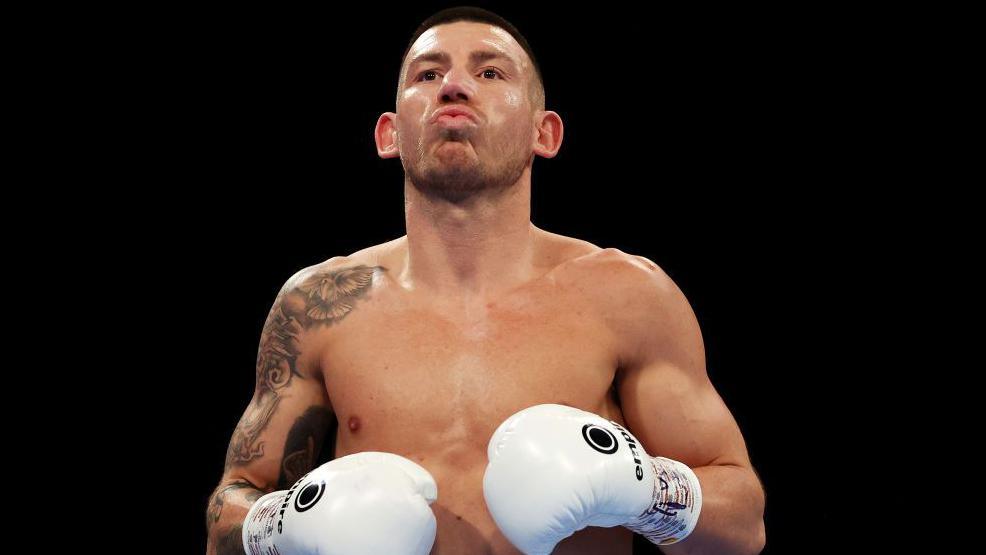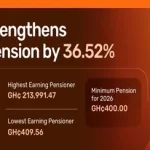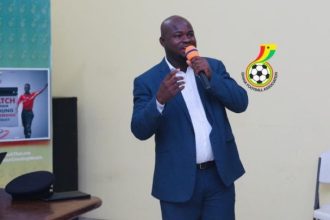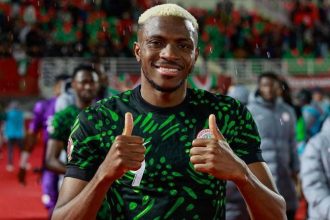World title challenger Liam Williams, one of Wales’ best boxers of the past two decades, says he has retired from the sport after receiving “several concussions”.
The 32-year-old, who won British, European and Commonwealth titles, says he is hanging up his gloves because he is worried about taking further blows to the head and suffering further damage to his brain.
Williams says he fought Chris Eubank Jr in 2022 despite knowing he was suffering the effects of a concussion and against medical advice heading into the fight as he “didn’t want to let down his fans”.
Williams says he realised after his last fight – a first round KO defeat by Hamzah Sheeraz in February – that he “had taken too much”, and does not want to “just fight for money” and “jeopardise his future with his family”.
Williams says he worries about chronic traumatic encephalopathy (CTE), a brain condition linked to repeated blows to the head and concussion. The condition, which gradually gets worse over time and leads to dementia, can only be diagnosed post-mortem.
“I know that boxing is brutal,” Williams added.
‘I’m done aren’t I?’
A decorated Welsh amateur boxer, Williams turned professional after his hopes of boxing in the 2012 Olympics were ruined when he was hit by a car while changing a tyre, ending his amateur career – he was unable to compete in Olympic qualifying – and his time as part of the GB Boxing development squad.
Amazingly escaping without permanent injury, Williams remained determined to box and follow in the footsteps of his hero Tommy Farr, whose family home was on the same street as that of Williams.
Farr, who won 83 fights in a career that spanned from 1926 until 1953, is considered one of Wales’ greatest boxers never to win a world title, although he headlined a show at Yankee Stadium against the great Joe Louis.
Williams turned professional training in the same gym as Nathan Cleverly – who went on to win a world title – but switched to train with former world title contender Gary Lockett, looking to step out of Cleverly’s shadow.
Having spent the majority of his career training under Lockett, it was Williams’ friend and mentor who confirmed to him that he needed to retire after Sheeraz knocked him down twice and stopped him in London.
“After the Sheeraz fight Liam and I were in the ring and he said to me ‘I’m done Gar aren’t I? I can’t take shots to the head anymore’,” said Lockett.
“I said ‘yes you are’. What else could I say? I couldn’t lie to him.”
Williams admits accepting the inevitable has been tough.
“I came back to my dressing room feeling down and feeling bad for myself, I was devastated at how I had performed.
“I trust the people around me and when they are telling you it’s over, you have to listen. It was very hard to hear.
“I’d had some problems with concussions. I had three or four in 18 months.
“I don’t want to box just for money and get a hit to the head you can never come back from.
“I’ve got a lovely family, a lovely partner, if I can’t enjoy my life with them because of damage to my brain, what would it be for?”
‘I probably shouldn’t say this’
Injuries always seemed to come at the wrong time for Williams, who like his hero Farr, will be remembered as one of the best Welsh fighters never to win a world title.
Being hit by a car and missing the Olympic qualifying event for London 2012 because at the time he could not even walk.
The knuckle injury he got when he was 22 and on an absolute tear as an undefeated professional who had already won a Commonwealth title, the one bad enough that a top surgeon told him that he should retire immediately.
Two hand surgeries followed before Williams returned and won European and British titles in 2015 and 2016 as he maintained his unbeaten record and won eight successive fights by stoppage, setting up an interim WBO world title fight against Liam Smith.
Injury would once again scupper Williams on his big night in Manchester as a cut to his eyelid – which the referee deemed to be from a punch, but Williams thought was from a headbutt – saw his corner end the contest in the 10th round with Williams ahead on all three scorecards.
However, it is the concussions that have made Williams decide to end his career for good.
Williams says he suffered three or four concussions in an 18-month period, having bounced back from losing to Smith – who also won a rematch by majority decision – with seven successive stoppage victories earning him a world title opportunity.
Williams travelled to the United States to challenge Demetrius Andrade for the WBO world middleweight title, losing by unanimous decision in a contest where Williams says he was concussed by an elbow.
The Welshman says he was then concussed in a sparring session ahead of facing Eubank Jr 10-months later.
“I probably shouldn’t say this, but a doctor told me not to fight Eubank as I had been concussed again,” Williams said.
“I’d had the concussion from an elbow in the Andrade fight, sparring, I probably knew I shouldn’t box Eubank, but there was a lot of money on the table.
“The fight was in Cardiff and I had sold a lot of tickets. I sold £200,000 worth of tickets from my house, it was crazy.
“I didn’t want to let people down, so I didn’t say anything.
“I had no punch resistance against Eubank. Obviously I should have listened about not fighting.”
There is no suggestion Williams failed his British Boxing Board medical tests ahead fighting Eubank, with Williams not disclosing the concussions he had endured.
‘I did have a blip’
Williams does not need reminding of the dangers of boxing, he’s lived the tragedy the sport can bring.
He was a stablemate of Nick Blackwell when he suffered a bleed on the brain in defeat by Eubank Jr in 2016 and spent nine days in an induced coma.
Six months after that, Williams went to support another stablemate, Dale Evans, as he fought local fighter Mike Towell in Glasgow in a fight that saw Towell seriously hurt and hospitalised. Towell died from his injuries the following day.
After several concussions and plenty of gruelling fights, Williams says the threat of further damage to his brain and the threat of CTE means he will not return as a fighter, tempted as he’s been.
“I’ve taken too much, I’ve had a long career, boxing has been all I’ve ever known,” he said.
“Heavy sparring, heavy hits, my resistance to punches is not as good and the risk are just too great, some hits you can’t come back from.”
Williams admits he is finding the adjustment tough after “boxing basically my whole life”, but admits he has had moments of doubt.
“Because of concussions I’ve had to retire,” he said. “It’s the right decision.
“But I did have a blip recently, I watched a fight, I can’t even remember which one and I immediately messaged my manager and said ‘get me a fight’.
“Then I rang him back the next day and told him to forget I’d said anything.”
Williams says he is “enjoying life”, having retired, with nights out with friends and “cheat meals”, now an option to him for the first time since he was a teenager.
With an eye to the future he has built a fitness gym at the back of his house and is currently doing personal training, but while he does not rule out a return to boxing as a trainer, Williams says he is “in no rush” to do so.
“I know I can offer good advice, I talk to my ex-stablemate (undefeated Welsh boxer) Rhys Edwards a lot and I don’t say this in a horrible way, but I know more about boxing than Rhys Edwards does, because of my experience,” he said.
“I like trying to help him. Maybe one day in the future I might want to do some training, but it’s a massive commitment.”
Williams retires with a 25-5-1 record, with 20 of his 25 wins coming via KO or stoppage.
“I would have liked to have won a world title, I was a bit unfortunate I suppose that when my opportunity it came against one of the best world champions (Andrade),” he said.
“I think I proved in my career that I could box at a world level, but I can look back and be proud of what I have done.”
















